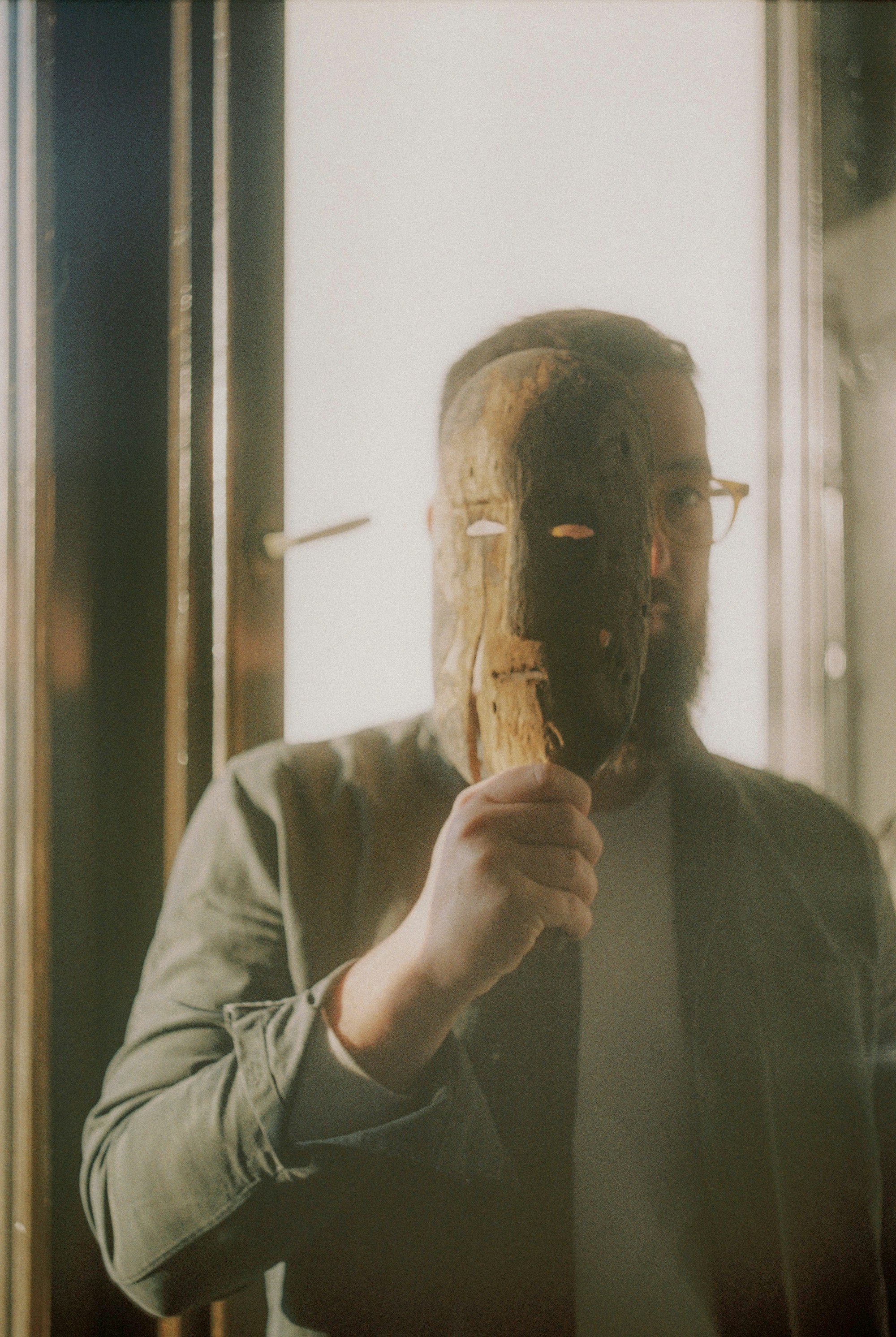What Does Hallucination Mean?

Hallucinations are a mental health condition that affects the way you perceive reality. It's like seeing, hearing, or feeling things that aren't really there. While hallucinations can happen to anyone, they often affect those with mental illnesses, such as schizophrenia and bipolar disorder.
A hallucination can be defined as an event where one's senses, such as sight, hearing, smell, or touch, experience something that is not real. They can also involve distorted or heightened sensations of real events. Hallucinations can occur as auditory, visual, olfactory, taste, and tactile experiences.
Hallucinations can be both alarming and confusing for those affected. It's important to remember that hallucinations are not dangerous in and of themselves, but the feelings associated with them may be disorienting and disruptive to the individual's everyday life. People who experience hallucinations should seek help from mental health professionals in order to determine the cause and the need for treatment.
Common Hallucinations
Hallucinations involve sensing, feeling, seeing, smelling, or hearing things that aren't really there. They can be incredibly vivid and realistic, making it difficult to distinguish between what's real and what isn't. People can experience both auditory and visual hallucinations.
Auditory hallucinations are often a symptom of mental illness, such as schizophrenia, and involve hearing noises or voices. The noises heard can range from music to whispers, and the voices may be male or female. They may also talk about someone in particular or be completely random.
Visual hallucinations can also be a symptom of mental illness, and can include seeing shapes, shadows, people, or even objects that aren't actually present. These hallucinations can take a variety of different forms. They may include images that seem to move around, or static images. They can also become extremely vivid and lifelike, and be seen from any angle.
In some cases, people may also have tactile hallucinations, which can involve tactile sensations on their skin or the sensation of movement when there is none. Some people also experience olfactory hallucinations, which involve smelling things that aren't actually present.
Hallucinations can have a huge impact on a person's quality of life, and can be very unsettling. It can be difficult to tell what's real and what isn't, and this can lead to feelings of confusion and distress. It is important for people with these experiences to seek help and support from a mental health professional.
Possible Causes of Hallucinations
Hallucinations are not a normal experience, and it's important to understand what may be causing them. Possible causes of hallucinations can vary from person to person, and can depend on a range of factors such as mental health, trauma or substance use.
In some instances, medical conditions can be the root cause of hallucinations. Conditions like Parkinson's, Alzheimer's, Stroke, Epilepsy and Dementia can all contribute to hallucinations. Medications used to treat these conditions may also trigger hallucinations.
Other potential causes include mental health conditions such as Bipolar Disorder, Schizophrenia and Anxiety Disorders. In some cases, trauma can lead to hallucinations due to people connecting traumatic experiences with real-life events. Additionally, substance abuse can cause hallucinations as a result of changes in brain chemistry.
It is important to note that hallucinations are not always caused by physical or mental illness, trauma or substance use. You may experience hallucinations for no known reason, or you may be more prone to them if you already have an underlying condition.
Symptoms of Hallucinations
Hallucinations are pretty unique, and it can be hard to tell if your experiences are a hallucination or reality. If you're concerned you may be having a hallucination, there are some symptoms to look out for.
Auditory Hallucinations
Auditory hallucinations involve hearing voices or sounds that don't exist. These hallucinations can sound like conversations between two people, whispers, mumbling, laughing, or tones. The content of these voices can sound completely different from the individual's thoughts.
Visual Hallucinations
Visual hallucinations involve seeing things that aren't there. This could include seeing people, animals, objects, or landscapes that aren't in your current environment. They appear as solid objects with distinct shapes and colors.
Olfactory Hallucinations
Olfactory hallucinations involve smelling things that don't exist. These smells can be anything from food to cigarettes to a specific person's scent.
Tactile Hallucinations
Tactile hallucinations involve feeling something that isn't there. These can range from feeling like something is crawling on your skin to feeling like someone is touching you.
It's important to note that these symptoms can occur outside of mental health conditions, such as in reaction to drugs or heavy alcohol consumption. If you're experiencing any of the above symptoms and are unsure of the cause, it's important to speak to a medical professional to get the help that you need.
Other Effects of Hallucinations
One of the most damaging effects of hallucinations is when they’re left unchecked. When unmanaged, hallucinations can be incredibly disruptive and can lead to severe distress and even psychological instability. Hallucinations can have a range of other impacts, including:
- Lack of concentration and focus
- Inability to distinguish between reality and your imagination
- Social isolation due to feelings of fear and paranoia
- Stressful relationships with loved ones
- Potential legal and financial issues due to impulsivity
- Risky behaviors that could harm oneself or others
- Premature death due to extreme cases of mental and physical illness
If you are experiencing hallucinations, it can be extremely beneficial to seek medical help as soon as possible. Ignoring your symptoms is likely to lead to more serious consequences, especially if the hallucinations are accompanied by other troubling signs or symptoms. Without proper treatment, the impacts of hallucination can be life-altering.
Treatment for Hallucinations
If you or someone you know is experiencing hallucinations, seeking professional help is always recommended. There are many treatment options available to address the root cause of hallucinations, which can help prevent them from occurring in the future.
Medication is the most commonly used treatment option for addressing hallucinations. Antipsychotic medications, such as risperidone, can help reduce frequency and intensity of auditory and visual hallucinations. However, these medications can come with unwanted side effects. It’s important to speak to your doctor about the potential risks before taking any medication.
Psychotherapy can also be helpful in reducing distress associated with hallucinations. Cognitive behavioral therapy (CBT) is one of the most effective treatments for addressing problem-solving techniques and identifying how best to manage and cope with difficult situations along with intrusive thoughts and visions.
In addition to medical and psychological treatments, lifestyle changes can also be beneficial for reducing hallucinations. This includes reducing stress levels, getting enough sleep, and making sure the person is eating a healthy diet. These practices can help to support overall mental health and well-being.
It’s important to remember that everyone responds differently to various treatments, and it may take some trial and error to find what works best for the individual. Seeking guidance from a qualified mental health professional can help determine the best course of action for treating hallucinations.
Support for Hallucination Treatment
One of the most important things to remember if you or a loved one is dealing with hallucinations is that you are not alone. Mental health professionals and family support can be integral to the recovery process. Having a support system that you can trust and rely on will help you move through the challenges that may arise from the experience.
Family and friends can offer emotional support. They can also provide practical help, such as reminders to take medications as prescribed, attend therapy or other appointments, or support in finding resources such as groups and activities that may be helpful in managing symptoms. Someone outside of the situation may also be able to give an unbiased opinion on how to best move forward.
Mental health professionals can provide invaluable assistance when it comes to managing hallucinations. Psychiatrists, psychologists, and therapists can help you gain insight into why you may be experiencing hallucinations, create tailored treatment plans, offer coping strategies, and monitor progress. A mental health professional can also help you recognize when changes may be needed and ensure any adjustments to treatment plans are made safely.
You don’t have to walk down this path of recovery by yourself. Reach out to your family, friends, mental health professionals, and trusted community organizations to access the support you need. It may be hard to take that first step, but with the right help and compassion, you can begin to understand and gain control over your hallucinations.
Common Myths Debunked
Hallucinations are a common but often misunderstood phenomenon. Many people falsely believe that hallucinations can only happen while using drugs, or that they’re a sign of mental illness. To help dispel these misconceptions, below we will debunk some of the most common myths related to hallucinations.
Myth #1: Only Drug Users Have Hallucinations
Contrary to popular belief, hallucinations can happen to anyone regardless of their drug use. They are often unpredictable and can happen at any time to anyone experiencing the right circumstances. Often, they are caused by physiological conditions such as seizures or sleep deprivation, or can even be a side effect of certain types of medication.
Myth #2: Hallucinations Are Always Negative
It is easy to believe that all hallucinations are negative, but this is not the case. While some can be disturbing, others may bring feelings of peace, joy, or curiosity. It is important to remember that hallucinations vary in type, intensity, and content, and it is possible for them to be positive.
Myth #3: Hallucinations Are the Same as Mental Illness
The two terms are often confused, but hallucinations are not the same as mental illness. Mental illnesses often involve distortions of reality, but hallucinations are distinct in that they involve actually hearing, seeing, tasting, feeling, or smelling something that does not exist outside of the individual’s mind. Additionally, hallucinations can result from many non-mental health related factors as well.
Myth #4: Hallucinations Always Happen for a Reason
It is true that in many cases hallucinations are caused by physiological conditions such as seizures or sleep deprivation, or can even be a side effect of certain types of medication. However, some people have hallucinations that are unexplainable. In such cases, it is important to find professional support and treatment to figure out the best course of action.
Conclusion
Hallucinations are a set of perceptual experiences that can sometimes be intrusive and disruptive. They can manifest as auditory, olfactory, visual, tactile, or even gustatory stimuli. It is important to recognize when one is experiencing hallucinations in order to receive the appropriate help. If left unchecked, hallucinations can cause other impacts such as anxiety, insomnia, and social isolation. Individuals with hallucinations may benefit from medications, therapy, and/or other lifestyle changes. It is also important for family and friends to support and assist the person struggling with hallucinations so they can effectively manage their condition.
In conclusion, it is helpful to understand what hallucinations are and how they might impact you. Knowing the various types of hallucinations, their potential causes, and the treatments available can help you better cope with them.
FAQs on Hallucinations
Hallucinations are a common symptom that affects many people. It's important to understand how to distinguish between reality and illusions, as well as knowing when to seek help. To help answer some of your questions, below are some commonly asked questions about hallucinations.
What is the Difference Between a Hallucination and a Dream?
The main difference between a hallucination and a dream is that a dream occurs during sleep, whereas a hallucination occurs while you are awake. Additionally, hallucinations tend to involve all five senses––sight, sound, smell, taste, and touch. Dreams, on the other hand, usually only involve sight and sound.
Can I Control My Hallucinations?
It can be difficult to control your hallucinations, as they can be unpredictable. However, it is possible to learn strategies to better manage them. For example, it might be helpful to practice deep breathing and other relaxation techniques, keep a regular sleep schedule, and pay attention to warning signs of an impending episode. Additionally, it can be beneficial to reach out to mental health professionals or support groups to develop coping mechanisms and find ways to manage your emotions.
Are Hallucinations Dangerous?
Hallucinations can vary in intensity and severity, with some being more distressing than other. For most, hallucinations are usually harmless, but they can become concerning if they start to interfere with your everyday life. In some cases, hallucinations can lead to self-harm or violent behavior, so it is important to seek help from a medical or mental health professional if you experience prolonged or severe episodes.
Glossary
Hallucinations are experiences of things that appear real, though they are not actually occurring in the real world. These experiences can be visual, auditory, tactile, olfactory, or gustatory in nature.
Delusions are false beliefs about reality; these beliefs are often held despite evidence to the contrary. Psychotic symptoms can include both hallucinations and delusions.
Psychosis is a mental health condition characterized by losing touch with reality. Symptoms such as disorganized thinking, hallucinations, and delusions can cause difficulty functioning in day-to-day life.
Schizophrenia is a chronic mental disorder that causes distorted thinking, abnormal behavior, and impaired social functioning. It can involve hallucinations, delusions, and disorganized speech and behavior.
Resources
If you’ve been experiencing what you think may be hallucinations, there are a number of resources available to help you. There are many mental health professionals who can provide support, assess symptoms, and develop treatment plans. Mental health professional services can include cognitive-behavioural therapy, lifestyle changes, medication, and other therapies.
There are also online resources dedicated to helping people better understand hallucinations, get the help they need, and find support. Here is a shortlist of helpful organizations and websites:
- National Alliance on Mental Illness (NAMI): A nonprofit organization that provides support and education for people with mental illness.
- Substance Abuse and Mental Health Services Administration (SAMHSA): A federal agency that focuses on prevention and treatment of mental health and substance abuse disorders.
- Hallucinations Help: An online resource center for those affected by hallucinations.
- Anxiety and Depression Association of America (ADAA): A nonprofit organization that works to prevent, treat, and cure anxiety and depression-related disorders.
- The International Society for the Study of Trauma and Dissociation: A professional society focused on providing support, networking, and education related to dissociative disorders.
Beyond these helpful organizations and websites, you can find support groups in your local area and/or online to talk about your experiences in a safe space. There are also meditation and mindfulness practices that can be helpful in reducing the frequency and intensity of your hallucinations.
You might also like this article:









